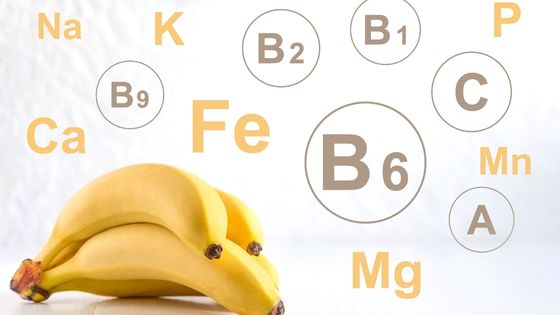Several vitamins and minerals are essential for the growth and development of children. The best way to ensure that their nutritional needs are met is to provide them with a varied and balanced diet because there is no complete food that guarantees health on its own. Here are the roles of some of the essential nutrients and the foods where to find them.
Vitamin A
Vitamin A allows the growth of bones and tissues covering the various parts of the body (cornea, bronchi, intestine, skin, etc.). It allows you to see well at night and contributes to the proper functioning of the immune system.


Vitamin A is present in foods of animal and vegetable origin. In plants, it is in the form of carotenoids, which the body transforms into vitamin A.
Vitamin C
Vitamin C increases the absorption of iron from grain products, legumes, eggs, and vegetables. It helps the proper functioning of the immune system, to heal wounds as well as to manufacture and regenerates blood, skin, bones, and ligaments. As vitamin C has antioxidant properties, it also helps protect cells in the body.
How to preserve vitamin C?
Vitamin C is very sensitive. Indeed, light, heat, and air can destroy it. Here are some tips to keep as much as possible in fruits and vegetables: Cut fruits and vegetables when you need them, rather than storing them for a few days. If you want to save time and cut some in advance, do it only the day before or the day before, and place them in an airtight container in the refrigerator.Wash fruits and vegetables under running water, not soaking them.
Keep fruit refrigerated, as it retains vitamin C 5 to 10 times better than at room temperature. Prefer fast cooking methods without contact with water (or very little), such as steaming, sautéing, baking, en papillote, and stewing. Eat raw fruits and vegetables regularly and, if cooked, keep them crisp.
Vitamin D
Vitamin D contributes to healthy bones and teeth by facilitating the absorption of calcium and normalizing blood levels of calcium and phosphorus. It additionally adds to a few capabilities in the body like reinforcing the resistant framework. Studies have also concluded that it helps protect against severe asthma attacks, diabetes, multiple sclerosis, and certain cancers.
Other sources of vitamin D
Thanks to the sun, the body produces its own vitamin D. Exposure to the sun for 10 to 15 minutes allows a child to produce enough vitamin D to meet his daily needs. However, the application of sunscreen prevents the production of vitamin D by the skin. Since most people don’t wear enough sunscreen to block 100% of UVB rays, partial sun exposure helps meet a child’s vitamin D needs, especially in the summer. This production of vitamin D is on the other hand impossible from October to April in Canada, because the sunshine and the power of the solar rays are then insufficient.
Vitamin D supplements
It is difficult to reach the recommended intake of vitamin D through food alone. To achieve this, one would have to drink 1.5 liters of milk per day, which is unrealistic and excessive. For this reason, more and more pediatricians and nutritionists are recommending that children take a 400 IU supplement during the fall and winter, in addition to regularly eating foods that contain vitamin D. Breastfed babies should also receive a supplement of 400 IU of vitamin D per day, breast milk does not contain enough.
For their part, babies in communities in the Far North should receive a vitamin D supplement of 800 IU per day if they are breastfed and 400 IU per day if they are fed with infant formula. To find out more, see our Vitamin D fact sheet.
Vitamin B12
Vitamin B12 contributes to the formation of blood cells and the proper functioning of nerves. Naturally, it is found in foods of animal origin only. However, some foods of plant origin are enriched with it.
As vegetarian or vegan children are at risk of vitamin B12 deficiency, it is strongly recommended that they meet with a nutritionist. She can check in the event that they are getting sufficient vitamin B12 or on the other hand in the event that they ought to take an enhancement.
Calcium
Calcium helps construct and keep up serious areas of strength for with and teeth. Calcium is essential for children as their bones are growing and developing. Calcium is also essential for muscle contractions, including those of the heart. In addition, it helps regulate blood pressure, promotes healing, and allows the brain to send messages to other parts of the body.
Iron carries oxygen to tissue and muscle cells. It also facilitates the cognitive development of children by increasing their level of attention and concentration and improving their intellectual performance. Iron exists in two structures: heme and non-heme. The heme iron found in meat, poultry, and fish is more easily absorbed than the non-heme iron provided by eggs and vegetables. When there is no meat or fish in the meal, you can include food containing vitamin C, because it increases the absorption of nonheme iron.
Magnesium
Magnesium helps solidify bones and teeth according to this dentist in Lake Jackson. It also helps the muscles and the heart to do their job well in addition to participating in the control of blood pressure, the production of proteins, and the use of energy from food
Zinc
Zinc allows the development and growth of toddlers. It strengthens the immune system and thus helps to fight infections. Zinc also contributes to the healing of wounds.
Zinc from meat, poultry, and seafood is better absorbed than that from grains, legumes, or vegetables






















